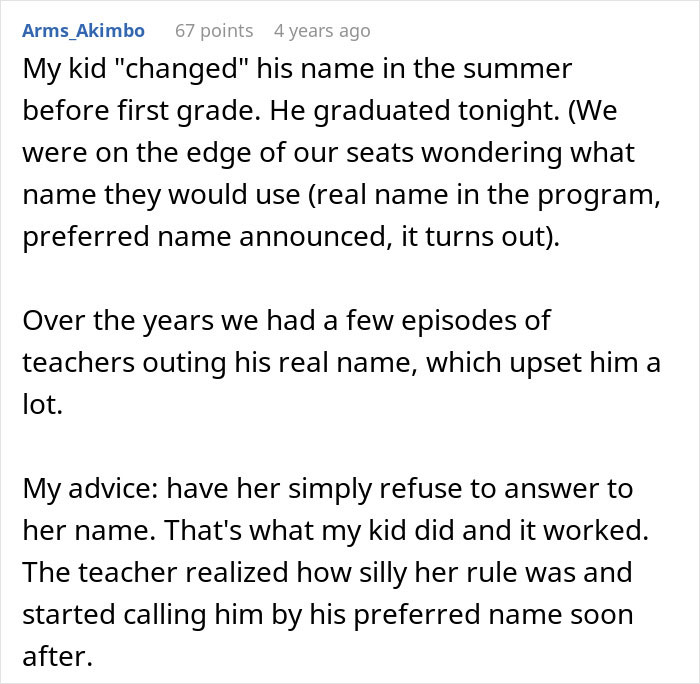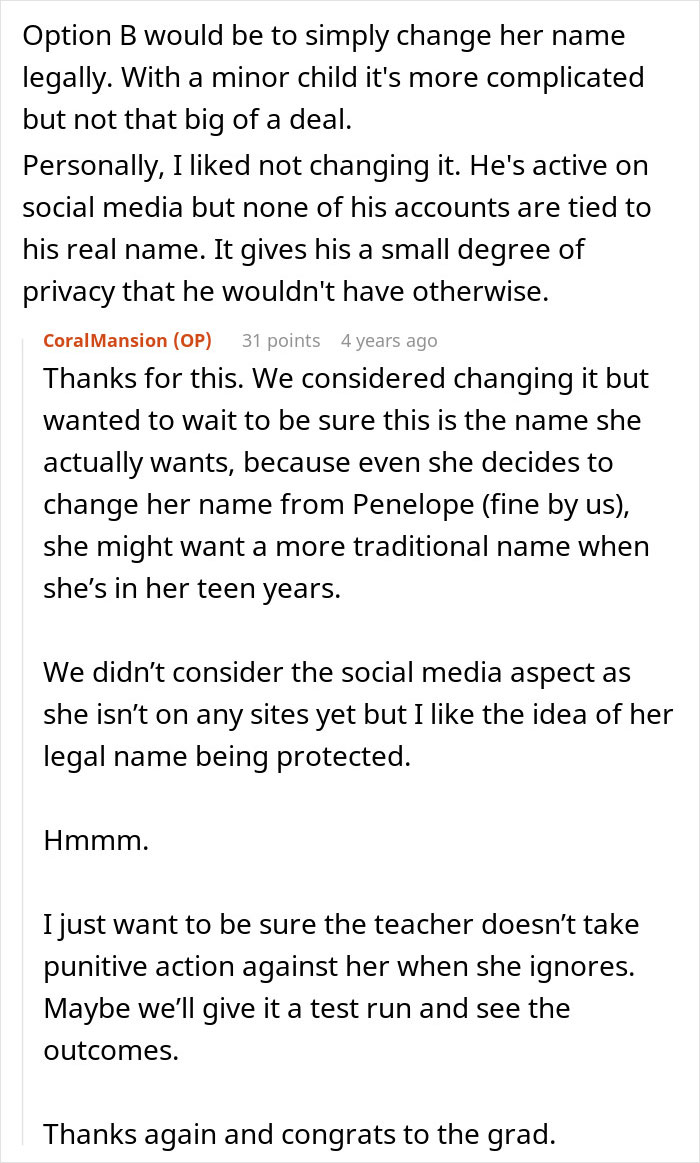As the great William Shakespeare once asked, “What’s in a name?” A lot, as it turns out—especially if you don’t like it.
Reddit user CoralMansion submitted a post to the platform’s parenting community, asking its members to share their opinions on a recent incident concerning their daughter.
The girl, Penelope, doesn’t like her name and wants everyone to call her Fiji instead. However, one of her teachers refused to do so, leaving the girl feeling misunderstood and frustrated.
A name is a big part of a person’s identity, and this girl felt like hers just didn’t fit

Image credits: Zinkevych_D (not the actual photo)
But when she asked people to call her by a different one, her teacher refused




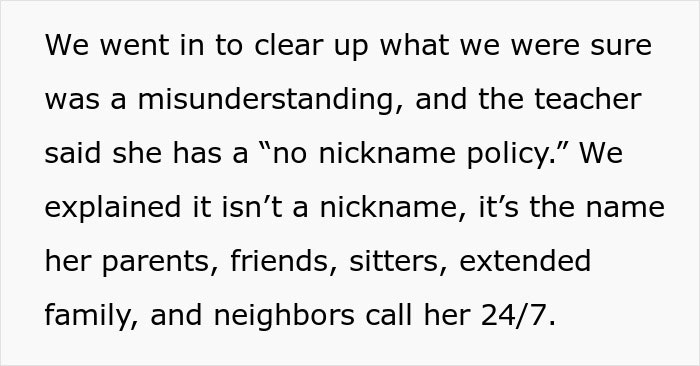

Image credits: National Cancer Institute (not the actual photo)
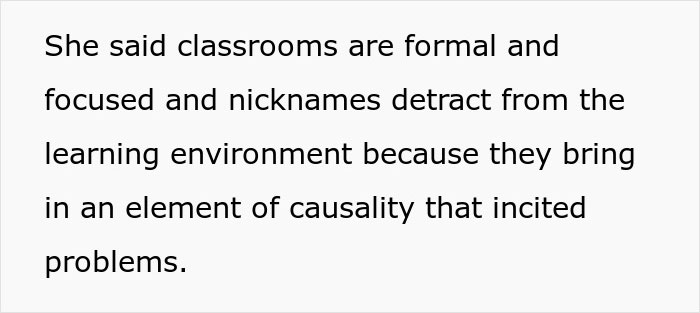
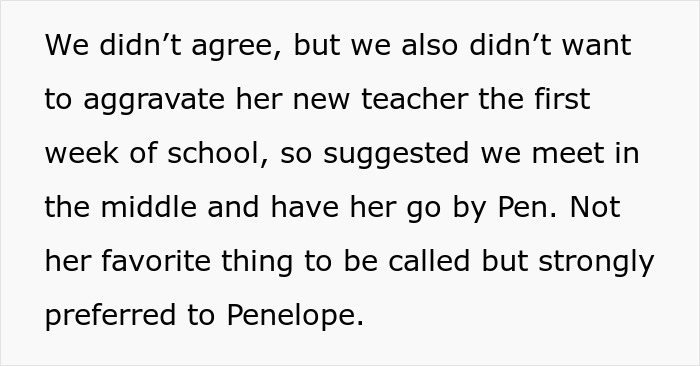
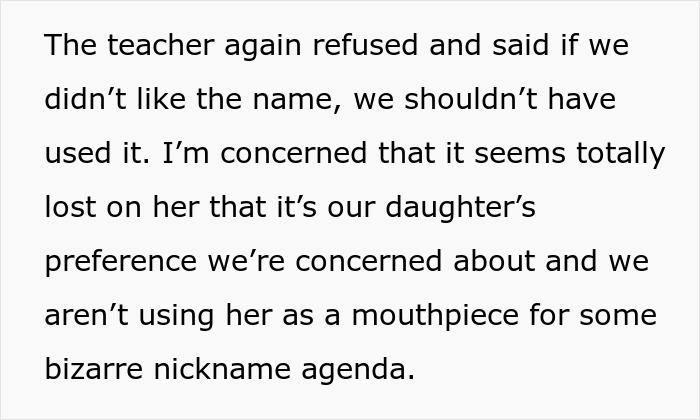

Image credits: CoralMansion
Our name isn’t just a string of letters
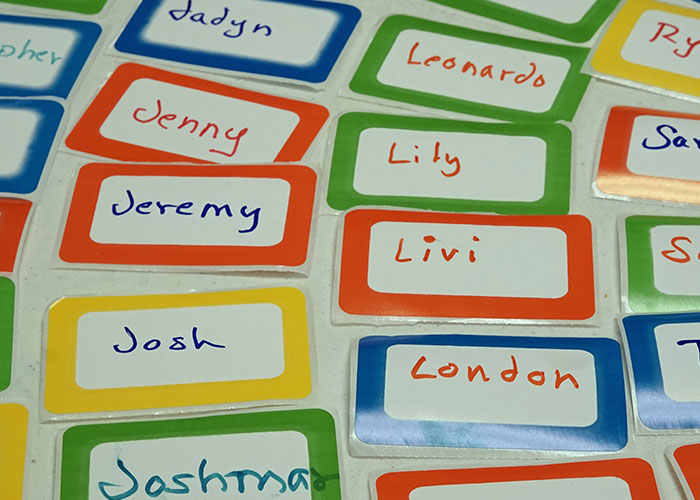
Image credits: martyw3 (not the actual photo)
The girl’s strong feelings toward her identity are understandable. According to psychologist Adam Alter, a marketing professor at NYU who’s studied people’s name preferences, we attach significant meaning to names when forming impressions.
To get a better understanding of the situation, consider this extreme hypothetical case: say a couple named their children Yes and No.
“Imagine having to present yourself as Yes versus No for your childhood, adolescence, and then into adulthood,” Alter presents this example. “One major effect is that it changes how you present yourself to others as you imagine how they’ll respond to your name,” which, in turn, influences how they actually do respond to you.
And if you feel like the name doesn’t really represent who you are, usually two things can happen: you end up feeding off of people’s responses to present a self that doesn’t feel entirely authentic, or you chafe against the impression your name puts forth, subvert the associated expectations, and feel trapped by a label that doesn’t seem accurate.
Either way, the predicament can create a sort of constant impostor syndrome, which could be what Fiji was going through.
A person’s name can even reflect their character and appearance

Image credits: Charlein Gracia (not the actual photo)
The link between who a person is and what they’re called is a concept known in psychology research as “nominative determinism,” or the idea that our name can shape who we become. A study that Alter co-authored found that we tend to think more favorably of people whose names are easier to pronounce — and that those people, in turn, are more likely to achieve professional success than their similarly qualified but more tongue-twisty counterparts.
One 2015 study even discovered that people look like their names: when participants saw a photo of a stranger and were asked to guess the person’s name from a list of choices, they picked the right one at a rate significantly higher than chance.
(For instance, in one of the experiments, the correct name of Dan was picked out of the pool — which also included Jacob, Josef, and Nathaniel — 38 percent of the time, as opposed to the 25 percent that would indicate random guessing.)
The explanation that the researchers behind this research offered for their results echoes Alter’s point: In many cases, a name is “a self-fulfilling prophecy.”
But they added that a name can instead be a “self-defeating prophecy” as well, when we adjust our appearance in subtle ways to intentionally rebel against a name that doesn’t fit. So maybe the teacher could’ve kept an open mind?
As the story went viral, its author joined the discussion in the comments






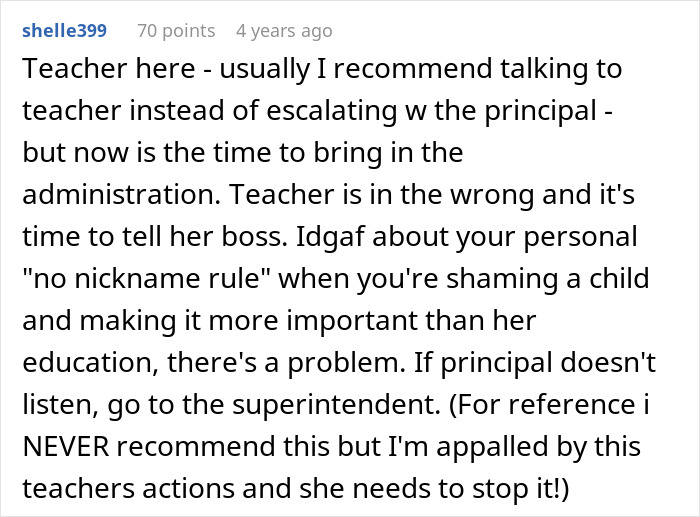

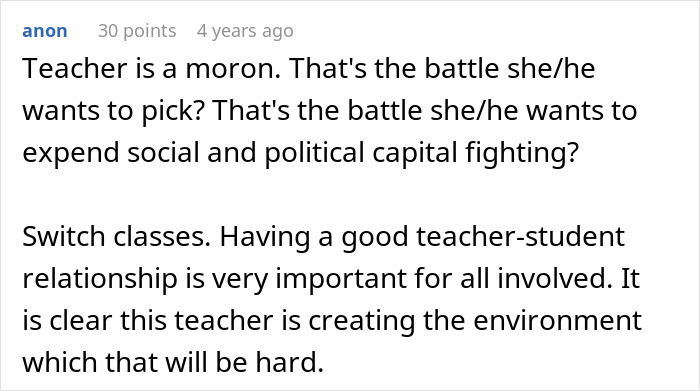
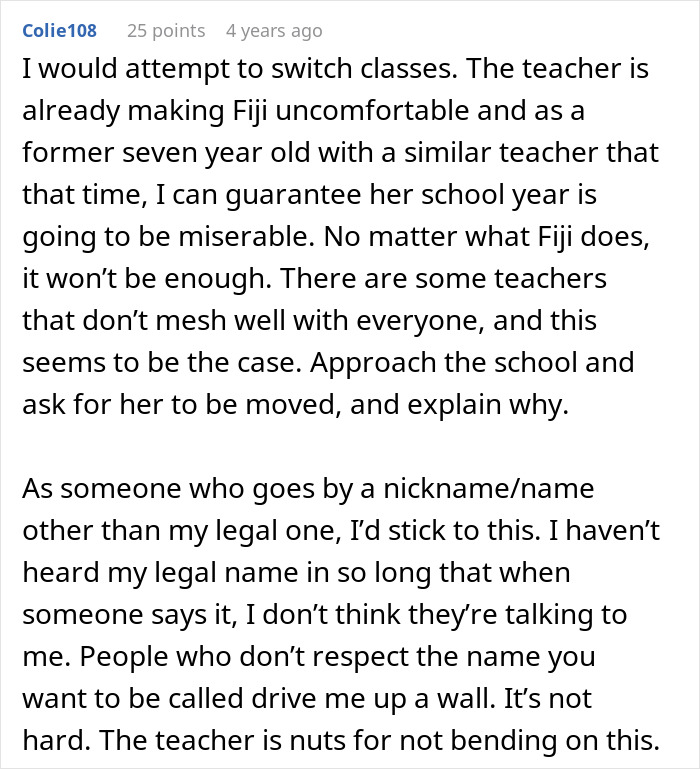



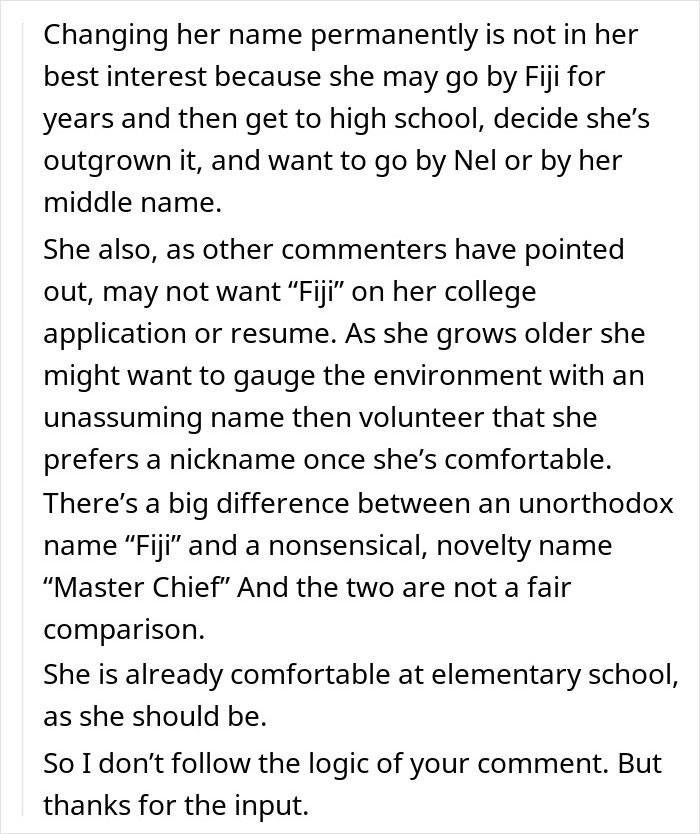
Some people shared their own similar experiences
